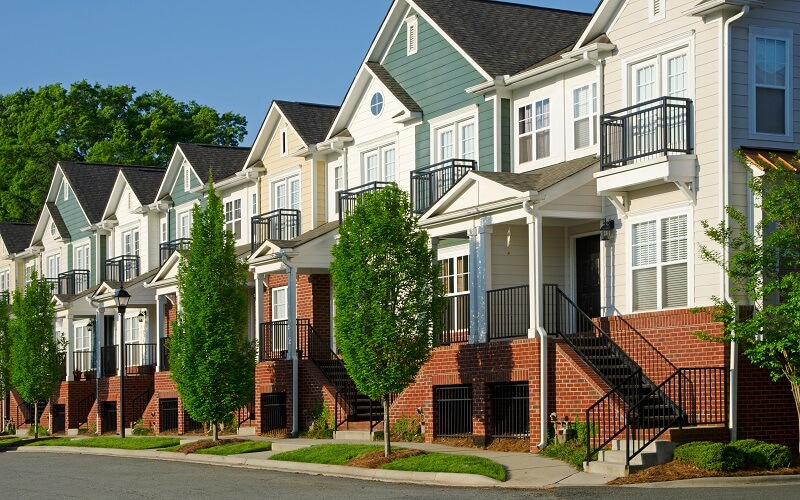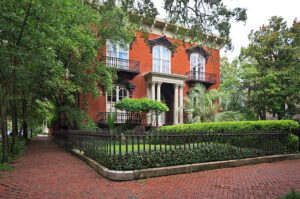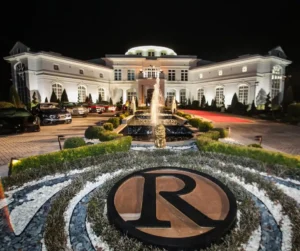What is a Townhouse? A Comprehensive Guide to This Popular Housing Style?

Townhouses are popular residential housing, balancing a single-family home’s privacy and an apartment’s convenience. But what exactly is a townhouse? In this article, we’ll explore the characteristics of townhouses, their advantages and disadvantages, and how they compare to other housing options like apartments and single-family homes.
What is a Townhouse? Understanding the Basics
A townhouse, or a row house, is a multi-level home that shares at least one wall with another property. Typically, townhouses are part of a row or a complex; each unit has its entrance and is usually spread across two or more floors. These homes are often built in urban or suburban settings and are designed to maximize space while maintaining a sense of individuality for each resident.
Unlike apartments, townhouses are often owned outright, not rented, which makes them an appealing option for people who want homeownership without the upkeep of a detached house.
Key Features of a Townhouse
- Multi-Level Design
Most townhouses are designed with two or more levels, often featuring living spaces on the ground floor, bedrooms on the upper floors, and sometimes a basement. This vertical design is ideal for urban areas with premium space, allowing homeowners to maximize their living space without sprawling outwards.
- Shared Walls
One of the defining features of a townhouse is that it shares walls with neighboring units. These common walls are usually built to be soundproof and insulated to enhance privacy and minimize noise between units. While this design maximizes space, it can sometimes result in less privacy than detached homes.
- Private Outdoor Space
Though smaller than a typical single-family home, many townhouses have a small yard or private patio. This can be a major perk for people who want an outdoor area without the burden of maintaining a large lawn.
- Ownership
Townhouses can be individually owned or part of a managed community with homeowners’ association (HOA) fees. In an HOA community, the association typically handles exterior maintenance and common areas, though homeowners are still responsible for the interior of their units.
Advantages of Living in a Townhouse
- Affordability
Townhouses are generally more affordable than detached single-family homes, making them a great option for first-time buyers or those who want to live in desirable areas without the high price tag. The savings come from the shared walls, which lower construction and land costs.
- Lower Maintenance
Homeowners often benefit from lower maintenance responsibilities since townhouses are usually part of planned communities with an HOA. The HOA typically covers exterior maintenance, including landscaping, roof repairs, and common area upkeep. This leaves homeowners with more time and energy to focus on the interior of their homes.
- Community Living
Townhouses often come with the added benefit of being part of a close-knit community. Many townhouse developments offer shared amenities like pools, playgrounds, or gyms. This can especially appeal to families or people who enjoy socializing with neighbors.
- Energy Efficiency
Townhouses tend to be more energy-efficient than single-family homes due to their compact design and shared walls. With fewer exterior walls to heat or cool, townhouses typically have lower utility bills, making them an environmentally and financially sound choice.
Disadvantages of Townhouses
- Limited Privacy
One of the main downsides of townhouse living is the reduced privacy. Sharing walls with neighbors can result in more noise and less seclusion than a detached home. Although soundproofing measures are often used, the noise from next-door neighbors can sometimes be an issue.
- HOA Fees
While an HOA can help with maintenance, it also comes with a price. Monthly HOA fees can increase over time, and homeowners must adhere to community rules and regulations. This might be better for people who prefer more independence in their living environment.
- Smaller Yard or Outdoor Space
Unlike single-family homes, townhouses typically have smaller yards or outdoor spaces. A townhouse might not be the best fit if you enjoy gardening, outdoor entertaining, or a more relaxing space.
- Restrictions on Customization
Some townhouse communities have strict rules about exterior modifications, such as painting or landscaping. This can limit your ability to personalize the look of your property compared to a single-family home, where you may have more freedom.
Townhouse vs. Apartment vs. Single-Family Home
Understanding the differences between a townhouse, an apartment, and a single-family home can help you determine the best option for your lifestyle.
- Townhouse vs. Apartment
- Ownership: Townhouses are typically individually owned, while apartments are often rented or leased.
- Space: Townhouses generally offer more space, especially in private outdoor areas and multi-level layouts.
- Cost: Apartments tend to have lower upfront costs, but monthly rent can be higher than mortgage payments for a townhouse.
- Privacy: Townhouses offer more privacy than apartments, as they don’t have shared living spaces like lobbies or hallways.
- Townhouse vs. Single-Family Home
- Space: Single-family homes provide larger living spaces and more private outdoor areas than townhouses.
- Cost: Single-family homes are often more expensive due to larger lots and more square footage.
- Maintenance: Townhouses typically require less maintenance due to the HOA taking care of common areas and exterior upkeep, while single-family homeowners are responsible for all maintenance.
- Privacy: Single-family homes provide the most privacy, with no shared walls or common spaces.
Townhouse Ownership: What You Need to Know
When considering a townhouse, it’s important to understand the ownership structure. In most cases, townhouse owners own both the interior of the unit and the land beneath it. However, some townhouses are part of a condominium-style arrangement, where owners only own the interior space and share ownership of the land and exterior with others.
If you’re buying a townhouse, it’s essential to research any HOA rules and fees, as these can impact your monthly costs and the lifestyle you’re seeking. Additionally, financing a townhouse is similar to funding a single-family home, but you may need to factor in HOA fees and community-specific requirements when securing a loan.
Who Should Consider Buying a Townhouse?
Townhouses are ideal for a variety of people, including:
- Young professionals who want a home with more space than an apartment but don’t need the upkeep of a single-family house.
- Small families need a home that offers privacy but at a lower cost than a detached home.
- Empty nesters or retirees looking to downsize but still want to own a home without the hassle of extensive yard work and maintenance.
- First-time homebuyers seeking an affordable option in a desirable neighborhood.
Conclusion: Is a Townhouse Right for You?
So, what is a townhouse? In short, a townhouse is a multi-level, privately owned home that shares walls with neighboring units. It offers a unique blend of privacy, space, and community living, making it an attractive choice for many buyers. While there are some drawbacks, such as limited privacy and smaller outdoor spaces, the benefits of affordability, lower maintenance, and energy efficiency make townhouses a popular and practical housing option.
Whether a townhouse is right depends on your lifestyle, budget, and housing preferences. A townhouse could be an excellent fit if you’re looking for a low-maintenance, affordable home in an urban or suburban setting.



